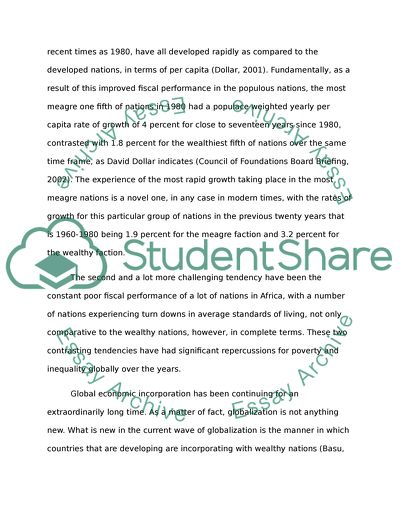Cite this document
(“What are the effects of Globalization on Poverty and Inequality Research Paper”, n.d.)
What are the effects of Globalization on Poverty and Inequality Research Paper. Retrieved from https://studentshare.org/history/1436101-what-are-the-effects-of-globalization-on-poverty-and-inequality-worldwide
What are the effects of Globalization on Poverty and Inequality Research Paper. Retrieved from https://studentshare.org/history/1436101-what-are-the-effects-of-globalization-on-poverty-and-inequality-worldwide
(What Are the Effects of Globalization on Poverty and Inequality Research Paper)
What Are the Effects of Globalization on Poverty and Inequality Research Paper. https://studentshare.org/history/1436101-what-are-the-effects-of-globalization-on-poverty-and-inequality-worldwide.
What Are the Effects of Globalization on Poverty and Inequality Research Paper. https://studentshare.org/history/1436101-what-are-the-effects-of-globalization-on-poverty-and-inequality-worldwide.
“What Are the Effects of Globalization on Poverty and Inequality Research Paper”, n.d. https://studentshare.org/history/1436101-what-are-the-effects-of-globalization-on-poverty-and-inequality-worldwide.


